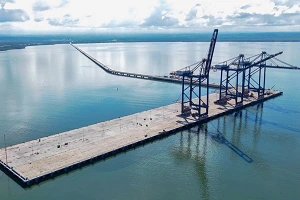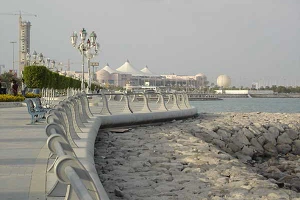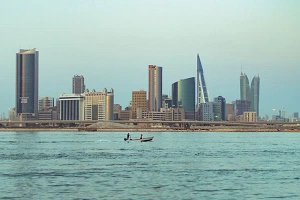Submarine cables hit the headlines in UAE, Kenya and Tunisia
- Details
- Category: Optical & Fixed Networks
- 47888 views

Two submarine cables – one linking the UAE and Kenya and the other linking Tunisia with France – have made news recently, the former thanks to a new launch, the latter because of a successful landing.
UAE-headquartered telecom and digital services provider du and PEACE Cable International Network Co have announced the launch of a new UAE–Kenya segment under the system. The initials PEACE stand for Pakistan and East Africa Connecting Europe, although various branches have evidently extended the cable network's reach.
This strategic development represents a key advancement in regional digital infrastructure, directly connecting the UAE with Kenya and strengthening the UAE's position as a global connectivity hub linking the Middle East, Africa and beyond.
The newly established UAE–Africa digital corridor builds upon an initial agreement with du to land the PEACE cable in the UAE. This expansion, say du and PEACE, introduces unprecedented route diversity, dramatically reduced latency, and enhanced data resilience across the network, enabling faster and more reliable transmission of data, cloud services, and digital content between Gulf and African markets.
They suggest that this enhanced connectivity infrastructure will serve as a cornerstone for supporting AI research initiatives, hyperscale data centres, and ambitious government-led digital transformation programmes throughout the region.
Meanwhile in Bizerte, 65 kilometres north of Tunisia's capital Tunis, majority state-owned operator Tunisie Telecom this weekend organised an official ceremony marking the landing of the Medusa Submarine Cable System on Tunisian shores.
Stretching over 8,700 kilometres, the Medusa cable, led by AFR-IX Telecom, which delivers internet and data services across Africa, and supported by the European Union, connects several countries across Africa, Europe, and the Middle East — including Tunisia, Portugal, Spain, France, Italy, Malta, Greece, Cyprus, Morocco, Algeria, Libya and Egypt .
The over 1,000-kilometre fibre pair connecting Bizerte to Marseille has a capacity of 22 Tbps, significantly increasing Tunisie Telecom’s international bandwidth. Tunisie Telecom is already part of the consortium that owns and operates the SEA-ME-WE (South East Asia–Middle East–Western Europe) 4 submarine cable. It also owns the much shorter Hannibal cable between Tunisia and Sicily.
Through this new infrastructure, according to Agency Tunis Afrique Press, Tunisia will strengthen its digital sovereignty, secure its international data exchanges, gain access to redundant global connectivity routes, and support the development of innovative digital services, including cloud computing, data centres, artificial intelligence, e-government services, and smart cities.


























